Over in the Forest . . .
From the box turtle to the possum, the song selected based on the group’s study of all the woodland animals that live at Miquon. READ MORE »
From the box turtle to the possum, the song selected based on the group’s study of all the woodland animals that live at Miquon. READ MORE »
While students are better understanding the past, they are also developing a strong foundation to critically think about how they can solve modern real-world problems through inventions. READ MORE »
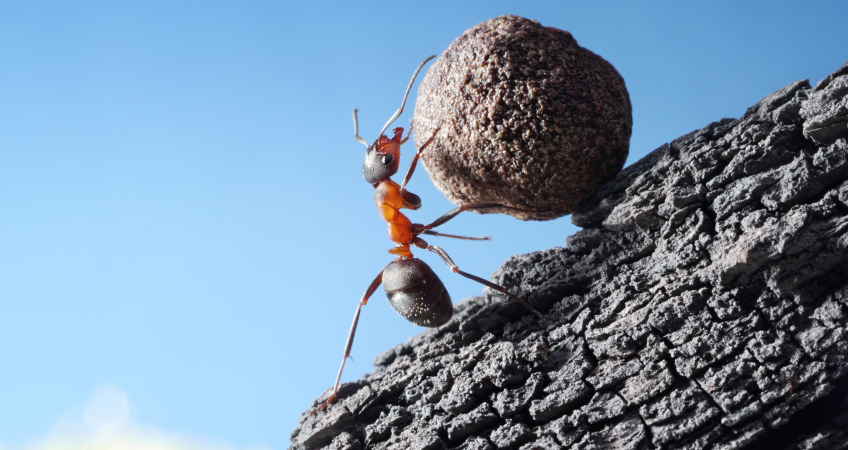
Those times when we make direct contact with the world beyond our classroom have a particular impact. READ MORE »
At Miquon, we believe that social and emotional growth is so integral to childhood that academic work cannot be seen as something our children are doing separately from their lives as friends. READ MORE »
Dear 3rd and 4th Grade Parents, We were immersed in Circuitry Workshop for the last few weeks of science. This unit focused on basic information about electricity, circuits and safety, but the primary purpose was to cultivate a “workshop mentality” in the science room. The emphasis was on trying out new ideas, persistence, collaboration and using materials with care. Many parents have asked for a list of materials and resources so that their children can continue experimenting and building circuitry projects outside of school. Here are some basics if your family is interested in keeping things going at home. Circuitry … READ MORE »
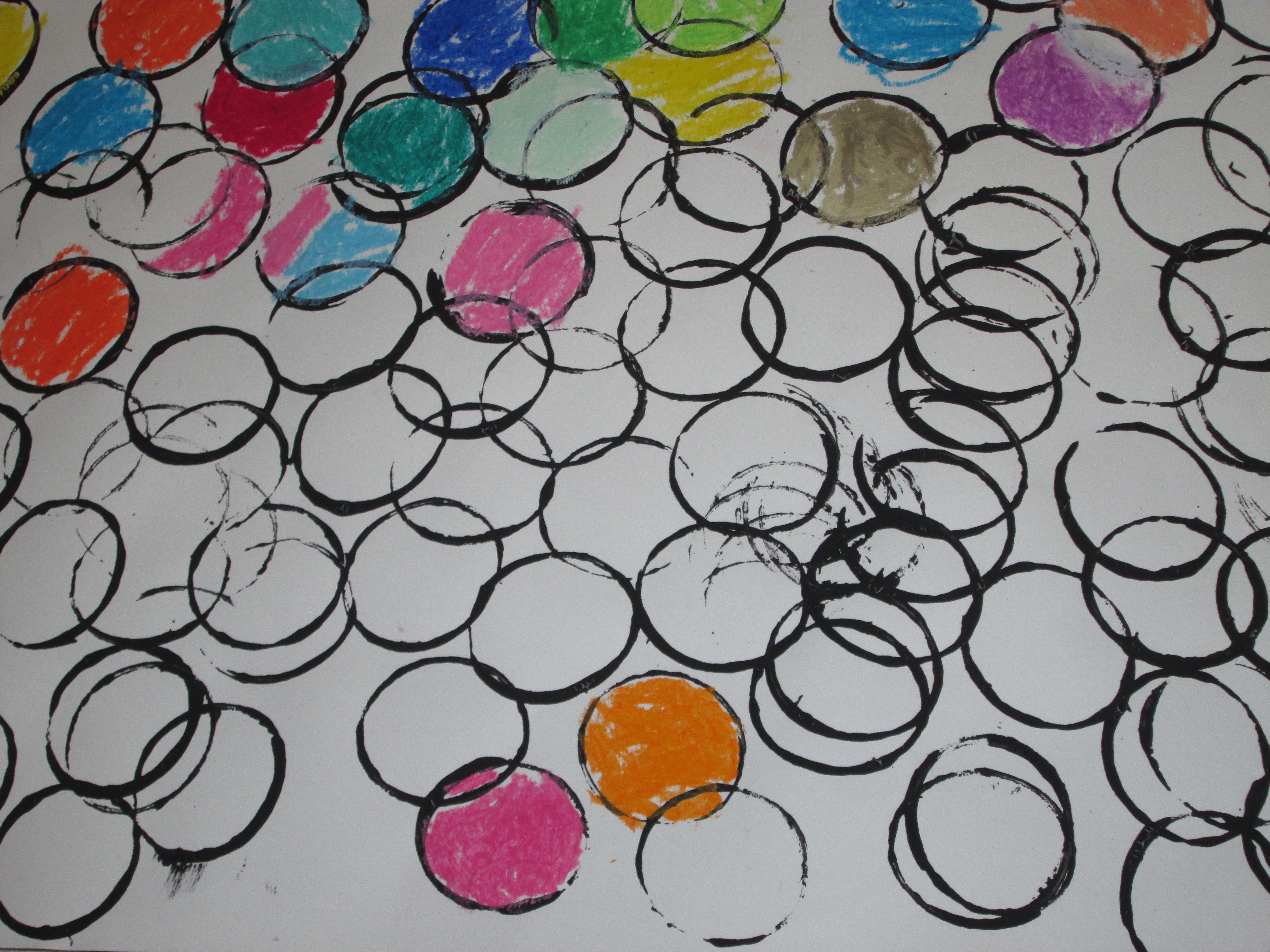
Young children are, by nature, curious about math. When children practice the foundational skills, such as number sense, geometry, measurement and spatial relations in a hands-on approach, it allows them to make meaningful connections with math in an authentic way. READ MORE »
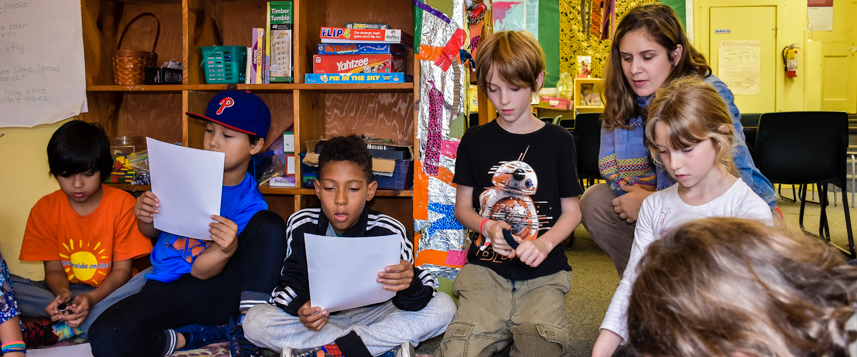
Children sing as a part of their conference week study of Ghana. READ MORE »
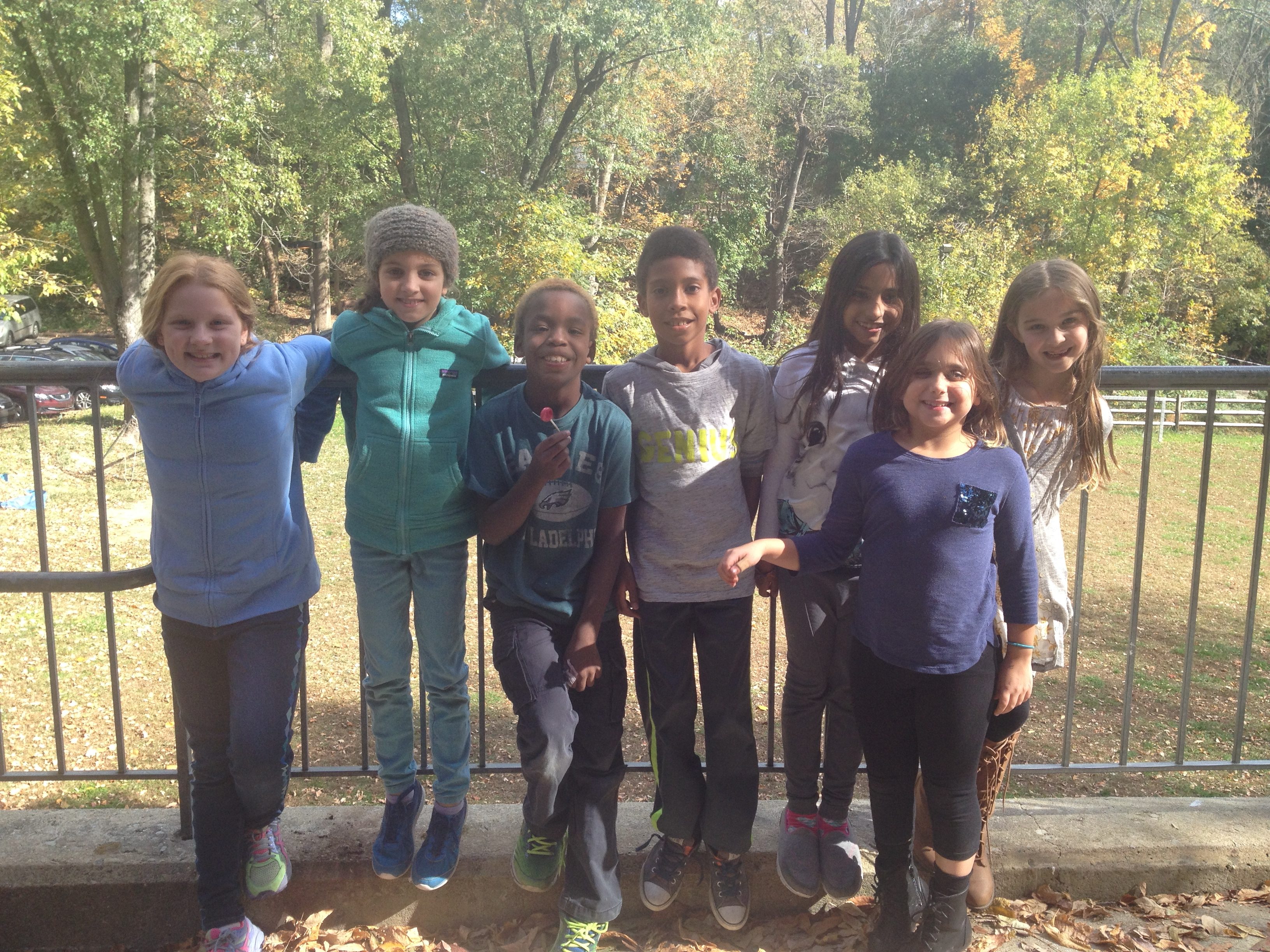
We reinforced our commitment to creating initial experiences that foster independence, build community and give voice to individual students. READ MORE »
We recently asked our nursery learners to help us answer the following question: What is a recipe? Immediately someone exclaimed, “Steps!” Young children enjoy describing how something is achieved through a series of actions or steps. When our nursery learners engage in dramatic play involving mud kitchens, palaces, and camping, contribute to group meetings to share ideas about conflict resolution, collaborate to add to circle songs and movement games, and work together on things such as kneading dough to printmaking, they also begin to make meaning of dialogue based on recipes, step-by-step instructions, lists, and other examples of procedural text. Outside in the mud kitchen, … READ MORE »
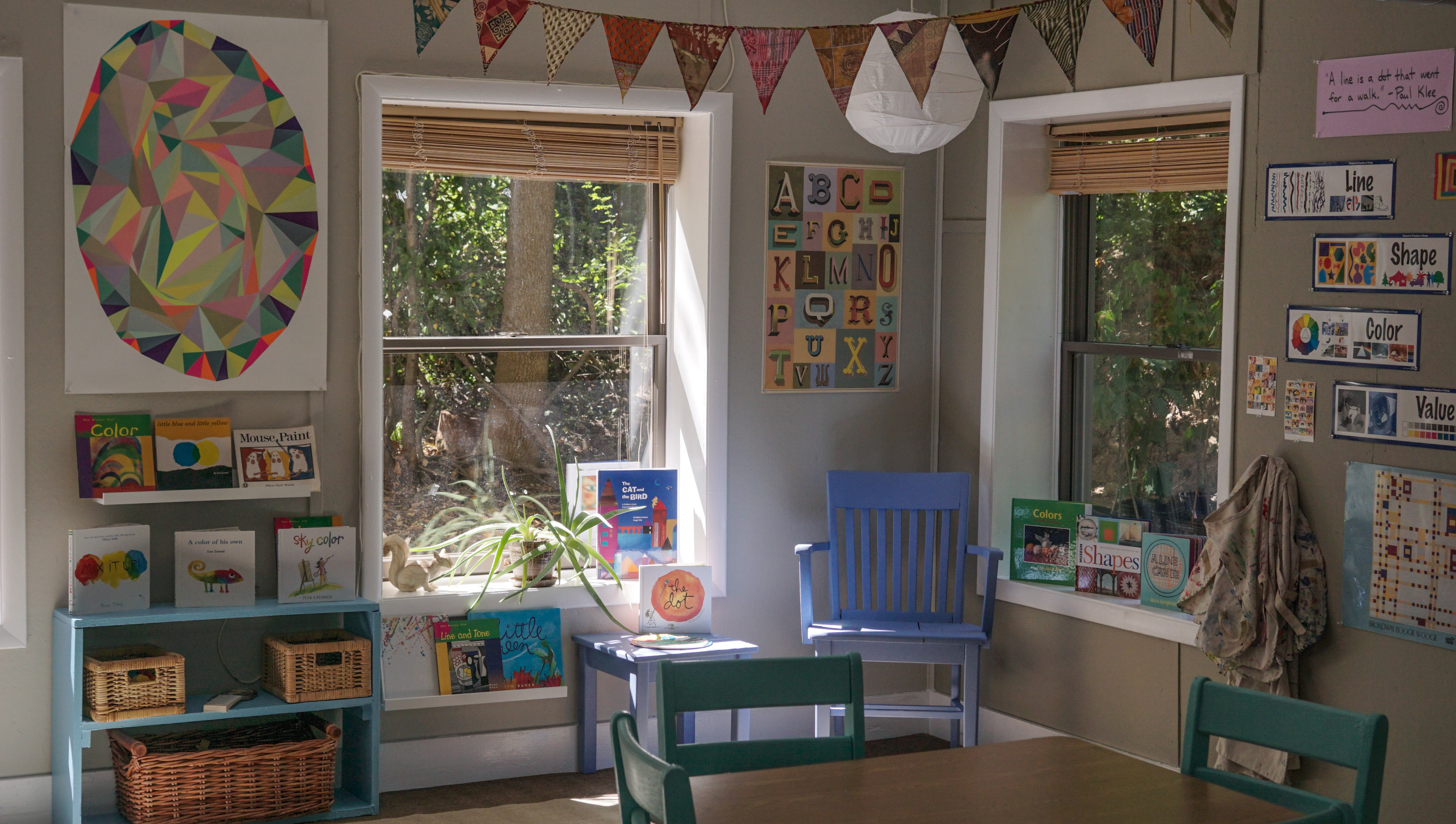
I wanted to be sure that we all have a shared vocabulary. . . and the many works of Paul Klee serve as wonderful examples upon which to base our discussions and explorations of the Elements of Art—Line, Shape, Form, Color, Value, Texture, Space. READ MORE »